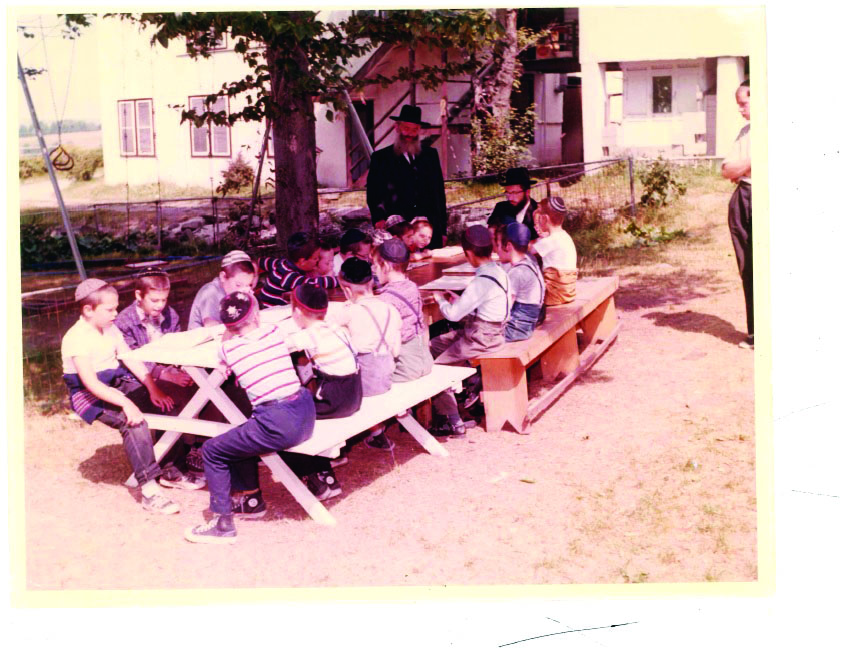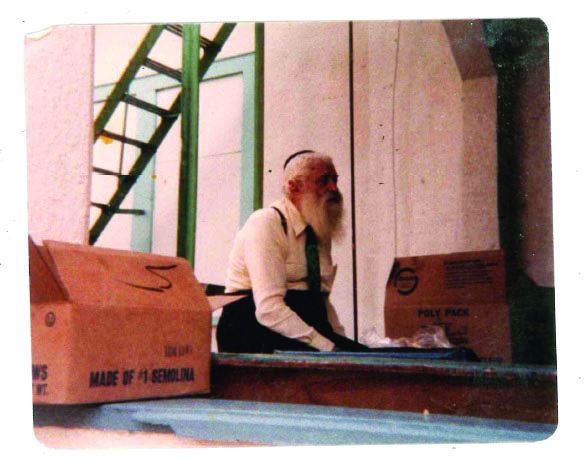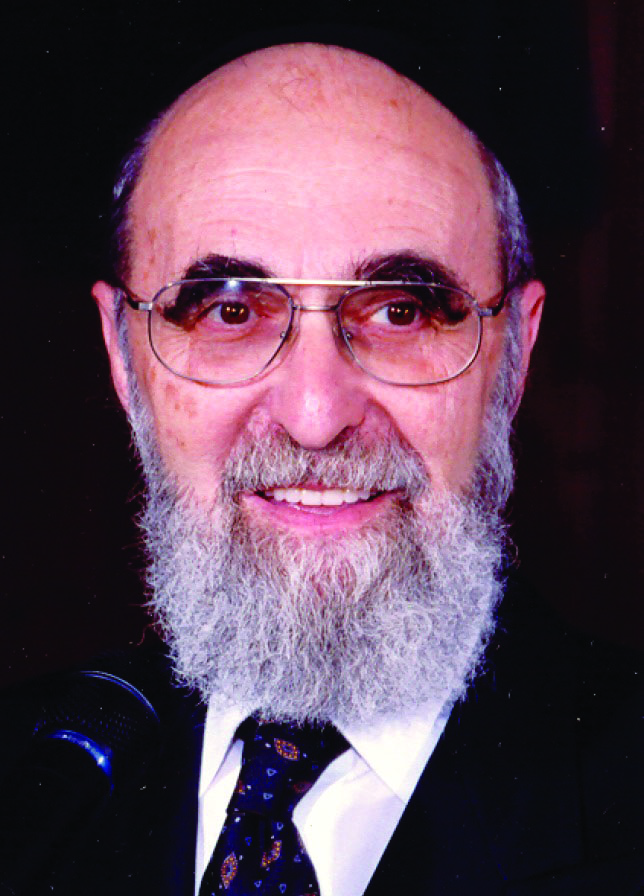deCAMPed – Alma Mater to Camps Of Yore
By Rabbi Binyomin Zev Karman
Alma Mater is the Latin phrase translated as “nourishing or bountiful mother.” While it has come to be associated with one’s school or university, in the world of Jewish summer camps it refers to the song each color war team composed; it was sung to bid goodbye to the place where childhood dreams and aspirations were allowed to foster and grow. Often, a meaningful song or chorus was adopted as the unofficial camp song in which the campers expressed appreciation and longing for the magical place known as camp.
Jewish summer camps existed early on in Europe — before World War I — Harav Yaakov Teitelbaum, zt”l, would take the youth of Vienna to the countryside for a few weeks of fresh air and relaxation. In the United States, early summer camps included Camp Mesivta, founded by Harav Shraga Feivel Mendlowitz, zt”l, Menahel of Yeshivah Torah Vodaas, who said that starting the camp (along with founding Torah Umesorah) guaranteed him a place in Gan Eden. Gedolim of high caliber such as Harav Elchanan Wasserman and Harav Shlomo Heiman, zichronam l’vrachah, spent some time in the camp. Camp North Star, located in Lake Placid, N.Y., founded by Mr. Margareten (of Horowitz-Margareten fame), was a luxury with a tuition of $500 ($6,000 in today’s dollars), where the likes of Mr. Irving Bunim and Rabbi Moshe Tendler visited to infuse the children with the spirit of Yiddishkeit.
As the survivors of the Holocaust settled in the United States, more Jewish camps opened, offering frum children a chance to experience tremendous growth, both physical and spiritual, during the long summer breaks that were common in that era. Inyan will present some of those legendary camps evoking memories preserved in the lyrics of each camp’s unique contribution to Jewish song: The Camp Alma Mater.
Rabbi Shlomo Kleinman, a survivor of the inferno known as Auschwitz, served as a melamed before the War. He continued his holy work in the aftermath of his liberation, serving as the Menahel of Yeshiva Be’er Shmuel in Boro Park.
In the summer of 1961, Rabbi Kleinman took a summer job as a Rebbi in a bungalow colony; he was also the self-appointed counselor of his group, supervising them during swimming and leading them in sports activities. With his talents as a leader clearly on display, some parents asked him to open a summer camp for their boys. As a result, in the summer of 1962, Camp Hadar HaTorah opened in Livingston Manor, N.Y. with 30 campers who crowded into 15 small rooms.

It was a small, family-run operation, with Rebbetzin Kleinman as the cook and her sister, Mindu Chaimowitz, as the baker. The camp was a success, and for 1963, Rabbi Kleinman purchased the old Holiday Hotel in Loch Sheldrake for Camp Hadar HaTorah.
The grounds were designed for use as a hotel — there were only buildings and no bunkhouses — but Rabbi Kleinman turned it into a camp. The main building contained the kitchen and dining room, with staff rooms upstairs. The campers slept in three buildings: one was aptly called the Camp Building, another the Winter House and the third was dubbed the Mesivta Building. The casino, a remnant of the old hotel days, was used as the shul, as well as a venue for night activities and plays. The Sunset Porch, which had a great view during the sunset hour, was used as the setting for mock weddings, as well as for Eichah on Tishah B’Av.
The grounds were not in great shape, but they had a pool, a punchball field, baseball fields, basketball courts and a volleyball court. “Some boys from other camps were disappointed at first when they saw how decrepit it looked, but after experiencing the spirit of Camp Hadar HaTorah, they soon understood that the surroundings were actually part of what made the camp distinctive,” said Sheya Mendlowitz, who was brought to camp in the mid-1970s to make it leibidig. “We had counselors who were simply embarrassed to show their friends from other camps around when they came to visit. We made up to say that Rabbi Kleinman did not allow tours of his ‘paradise.’ Throughout their visits, we made fake announcements over the PA system, announcing things like, ‘Attention by the indoor pool,’ or ‘Moshe, please go to the go-cart track,’ to give the impression that the grounds were filled with the latest innovations. All this lent a spirit of fellowship to the campers and counselors of Hadar HaTorah.”
Simpler Camp for Simpler Times

This fledgling camp had just 90 campers the first year but soon grew to around 200 boys. “Most of the campers were children of Holocaust survivors, and although their parents were of modest means, they wanted their children to have an enjoyable summer,” said Rabbi Moshe Elefant, who spent 13 memorable summers at Hadar HaTorah, first as a camper and later as a staff member. Today he is chief operating officer and executive rabbinic coordinator of OU Kosher. “It was a time when life was simpler, and children would enjoy themselves without zip lines or trips every day of the week.
“The camp looked much as Boro Park looked at that time, which could loosely be described as heimish; not Chassidish and not Litvish, but somewhere in the middle of the road. It filled a void at the time, and it attracted children from an array of wonderful families. The staff was made up of people with tremendous talent who went on to accomplish great things in life.”
Harav Shimon Eider, zt”l, was a rebbi, and Rabbi Avi Lieberman, zt”l, and ybl”c Harav Yaakov Bender each served as the learning director. Other talented staff included Rabbi Shmuel Kunda, z”l, (who went on to start Camp Naarim in Fleishmanns, N.Y., together with ybl”c Rabbi Dovid Presser), Rabbis Benny and Chaim Weilgus, and Rabbi Yitzy Erps. Many of the founding members of the Neginah Orchestra spent their summers there, including Rocky Zweig, a”h, ybl”c, Issac Gross and the Lamm brothers. Eli Kranzler composed many songs and introduced them in camp, and other well-known songs were composed and publicized in Camp Hadar HaTorah as well.
The first head counselor was Rabbi Abrahmson. Rabbi Dovid Price (principal of Prospect Park Yeshiva), Rabbi Chaim Fessel (assistant principal of secular studies in Mesivta Torah Vodaas), Leib Konig and others led the camp during the more than two decades of its existence.
Through the years, the splendor of Torah was brought to life as several mesivtos joined the camp to spend their summer zman in Hadar HaTorah, including Harav Binyomin Paler’s Yeshiva Mekor Chaim, Harav Yosef Rosenblum’s Yeshiva Sha’arei Yosher, and Harav Shlomo Mandel’s Yeshiva of Brooklyn.
Gentle Giant
Although he appeared to be a formidable figure who could carry two picnic benches at once, Rabbi Kleinman possessed a soft heart and was considered a beloved zeide by all. He cared deeply for the campers under his charge, and he would sleep outdoors on a bench all night to serve as the security guard and make sure nothing happened to anyone. Yet woe to the person who was up and talking past Lights-Out; he acted as head OD and had his own inimitable manner of ensuring that the same offense would not reoccur.
As a Holocaust survivor, Rabbi Kleinman was sensitive to the eating habits of the children, and he made sure everyone ate a full nutritious meal, even personally placing food onto each one’s plate.
“Say the words ‘halt grood’ to any Hadar alumnus and you are sure to get a belly laugh out of him,” the Kleinman family relates. “He would pour the chocolate milk that was served for snack, yet because he had a tremor, it inevitably ended up all over the camper’s arm. As the milk spilled, Rabbi Kleinman would urge the children to halt grood — to hold their cup straight and not move it — to prevent the liquid from spilling all over them.”

As the years went by and the Boro Park community grew, yeshivos that used to send their students to Hadar HaTorah opened their own camps, and the number of campers dwindled. Ever resourceful, in 1982, Rabbi Kleinman decided to switch the camp to a girls’ camp named Bnos Hadar HaTorah (BHT).
“Bnos Hadar HaTorah, You’re the Camp for Me…”
BHT was run by Rabbi Kleinman’s daughter, Mrs. Esther Krausz, and it took off as an immediate success. Like its predecessor, it also attracted the middle of the road girls from many schools. The small-scale of the camp made it feel like a family; everyone knew each other.
What the camp lacked in gashmiyus, it more than made up in ruchniyus, and the ruach was contagious. There was no competition, be it in clothing or possessions. Camp was just fun from boker tov through night activity, filled with spirit and positive energy.
The head staff included the incomparable Chips Gold, Mrs. Leah Dembitzer, who filled many capacities, Shifra Sabel, Chanie Krupnick, and program directors Henny Kahn, Chanie Berg and Devoiry Herbst. There were many special head counselors who added so much.
“Running a camp involved a lot of physical and mental work,” Mrs. Mindy Nagel née Krausz said. “Since it was a family-run camp, our hearts and souls were invested in every aspect of camp. Rabbi Kleinman used to leave his family from after Pesach until camp opened at the end of June or beginning of July. As he aged, it became harder to keep up with the work involved, and the difficult decision was made to sell the camp, which was a big disappointment to the extended camp family.
“Yet, whenever any former campers meet up — whether from Hadar HaTorah or from Bnos Hadar HaTorah — they reminisce and miss all the wonderful memories as if it were yesterday, no matter how many years ago they were in camp.” As the camp song goes:
No words can describe
My feeling inside
As I say to you,
BHT goodbye!
Girls’ Camp Alma Mater
Just feel that summer breeze
And the whispering of the trees
As I softly sing the songs of times left behind
The warmth, and friendship and the joys come to mind
BHT — You’re forever mine
A Star is Born
“One of my grandsons, who as a chassan made a siyum on Shas and is a true ben Torah, came to visit us when we were on a trip to Eretz Yisrael,” Dr. Joel Rosenshein related. “As we were chatting, I mentioned that as a child I had gone to Camp North Star, and he was shocked. The boys division and girl’s division were separated by a large lake, but nevertheless he was a bit incredulous about my attendance in North Star.
“A short while later, we went to daven in the Gra’s Shul, and we met Rabbi Elazar Meir Teitz, the Rav of Elizabeth, New Jersey, who was my bunkmate in North Star for a short while. After our warm greetings, I called out to my old friend, ‘Ah, Rabbi Teitz!’ to which he responded, ‘What’s with this Rabbi Teitz business? I’m Elazar Meir to you — we were bunkmates in North Star, remember?’
“My grandson was awed. Could it be that this man’s father, the famous Harav Pinchos Mordechai Teitz, zt”l, would send his son to a such a camp?
“‘His father allowed him to enjoy camp for only one month,’ I explained to my einikle, ‘and then he took him to learn in the Telshe Yeshivah that had been re-established in Cleveland. That’s the caliber of boys I met in North Star!’”
To Read The Full Story
Are you already a subscriber?
Click "Sign In" to log in!

Become a Web Subscriber
Click “Subscribe” below to begin the process of becoming a new subscriber.

Become a Print + Web Subscriber
Click “Subscribe” below to begin the process of becoming a new subscriber.

Renew Print + Web Subscription
Click “Renew Subscription” below to begin the process of renewing your subscription.





